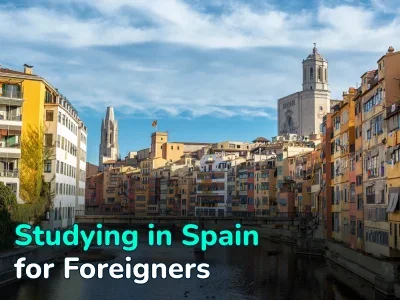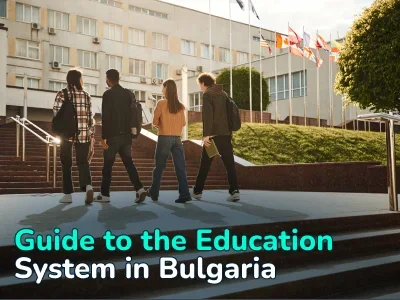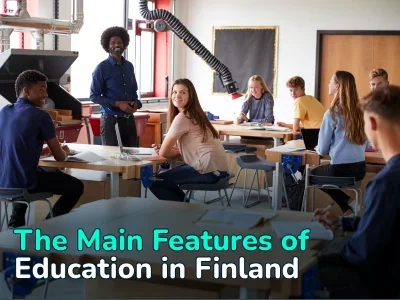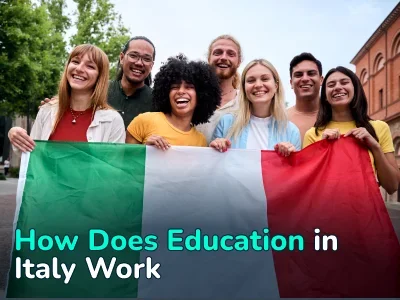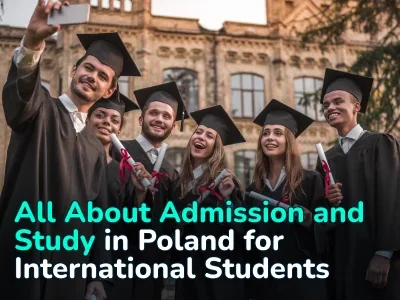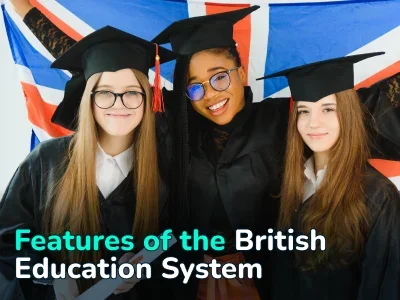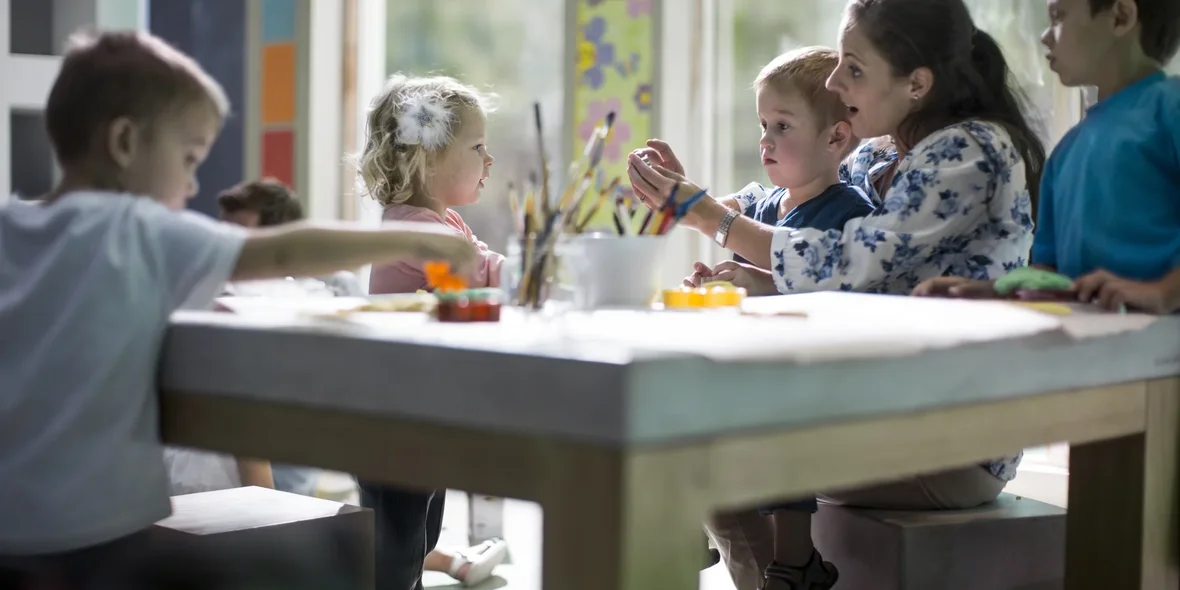
Cyprus Education System, Schools, and Universities in Cyprus
Cyprus is a small island country in the Mediterranean Sea. It has a strong education system that works well for both local students and those from other countries. The government's Ministry of Education and Culture is responsible for the whole process.
The education system in Cyprus has four main parts:
- Pre-primary education (for very young children).
- Primary education (elementary school).
- Secondary education (middle and high school).
- Higher education (university and college).
In this guide, we'll look at each of these parts in detail. We'll explain what makes Cyprus's education system special and provide useful information for students, parents, and teachers.
Overview of Education in Cyprus
Cyprus takes education very seriously. In fact, it's one of the top three countries in the European Union for spending money on education. Cyprus, along with Denmark and Sweden, spends about 7% of its total wealth (GDP) on education. This means Cyprus puts a lot of effort into ensuring its schools and universities are good and available to everyone on the island.
Here are the main things to know about education in Cyprus:
- All children must go to school, even if their parents are not permanent residents of Cyprus.
- The majority of schools are taught in both Greek and English.
- There are both public (government-run) and private schools at all levels.
- Education in Cyprus for International students requires an equivalent diploma/certificate for admission.
But who can write paper for me? Time-proven paper writers would do this for you — they produce only 100% handwritten essays.
Pre-Primary Education
In Cyprus, pre-primary education is the first step in a child's school life. It's very important for getting kids ready for elementary school. Since 2004, the government has said that all children must go to pre-primary school.
Here are the main things to know:
- Enrollment age: 3–5 years.
- Mandatory from age 4 years and 8 months.
- Types of institutions: municipal, community, and private kindergartens.
- Language of instruction: primarily Greek, with some private institutions offering English or other languages.
- Curriculum focus: preparation for primary school, social skills development, and early learning.
Types of preschool institutions:
|
Type of Institution |
Features |
Funding |
|
State (Municipal) |
Follow state program. Prepare children for Greek primary schools. |
Funded by the government. |
|
Community |
Often attached to municipal kindergartens. Cater to younger children (3–4 years). |
Run by parent associations, community councils, or charitable organizations |
|
Private |
May offer additional programs, as well as instruction in languages other than Greek (e.g., English, Russian). |
Commercial. Operate under the Private Schools Law of 2019. |
Costs and enrollment:
- Public kindergartens: €45–150 per month, depending on hours attended.
- Private kindergartens: vary widely, from €130–500 per month.
- Meals: about €2 per day (often paid separately).
- Additional fees may include registration, medical insurance, and deposits.
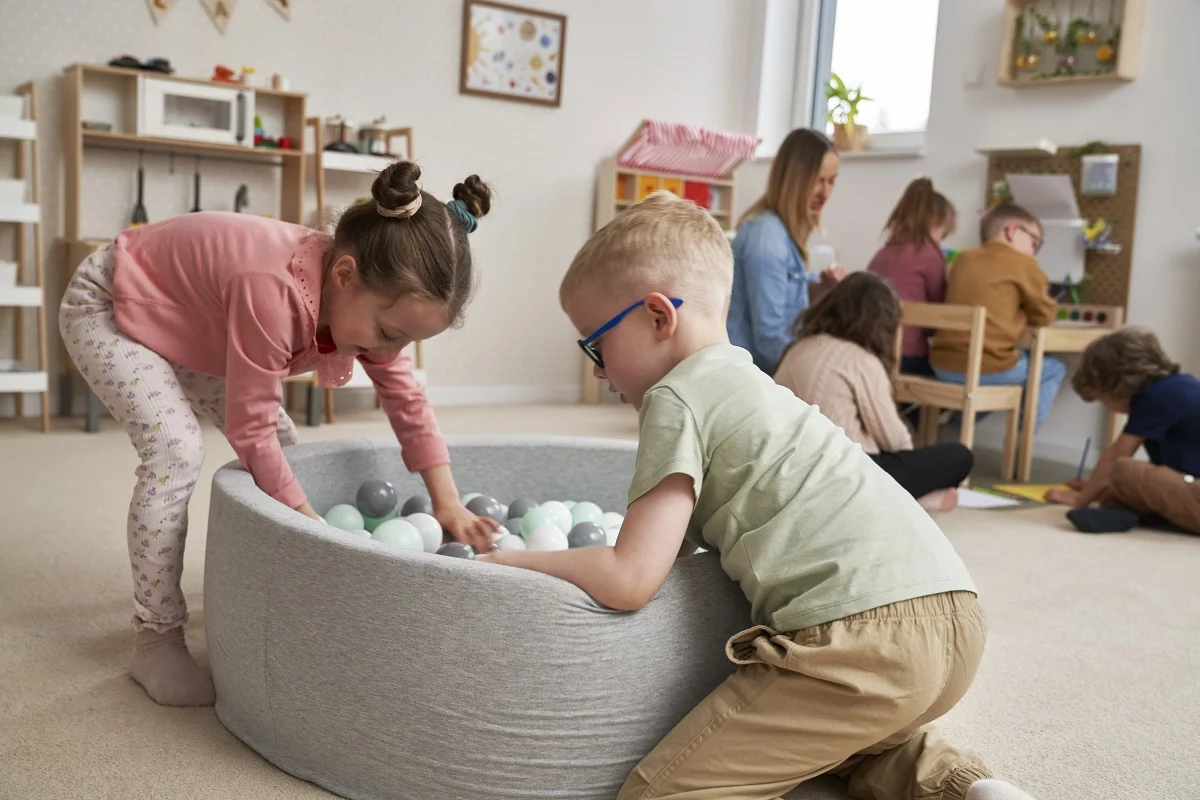
Primary Education
Primary education in Cyprus is compulsory and forms the foundation of a child's academic journey. It spans six years, typically from ages 5.5 to 12.
Here are the main things to know:
- Mandatory for all children.
- Takes six years to finish (grades 1-6).
- Age range: 5.5-12 years.
- Curriculum: set by the Ministry of Education and Culture.
- Language of instruction: Greek in public schools, various languages in private schools.
- Focus on core subjects: Greek, Mathematics, Science, History.
- No written exams at the end of the year.
- Creative and engaging homework assignments.
- Maximum class size of 25 students.
|
School Type |
Number in Cyprus |
Features |
|
Public |
341 |
Free education |
|
Private |
about 30 |
Paid education (€1000–6000 per year). May follow international curricula (e.g., British, American). Found primarily in urban areas. |
Secondary Education
After primary school, students in Cyprus move on to secondary education. This is similar to what many countries call middle school and high school.
Lower secondary education (Gymnasium):
- Duration: 3 years (grades 7-9).
- Age range: 12–15 years.
- Required for all students.
- Focuses on general education subjects.
- Weekly workload: 38 hours.
Upper secondary education:
After completing the Gymnasium, students can take one of two paths:
- Lyceum (general upper secondary education):
- Duration: 3 years (Grades 10-12).
- Prepares students for university entrance.
- Provides a mix of required subjects and electives.
- Weekly workload: 35 hours.
- Technical schools:
- Duration: 3 years.
- The emphasis is on vocational and technical training.
- Prepares students for a specific profession or additional technical education.
Curriculum in the Lyceum:
Specialization options in the 10th grade include:
- Ancient Greek and History.
- Physics and Mathematics.
- Economics and Mathematics.
- English and Economics.
In the 11th and 12th grades, students can specialize in:
- Classical and Humanities.
- Foreign Languages and European Studies.
- Natural Sciences, Biosciences, Informatics, and Technology.
- Economic Studies.
- Trade and Services.
- Arts.
Examinations and Certification:
- Annual promotional exams in grades 7-11.
- Final exams in Grade 12, which also operate as university entrance exams for Cyprus and Greece.
- Graduates receive a school-leaving certificate (Apolyterion).
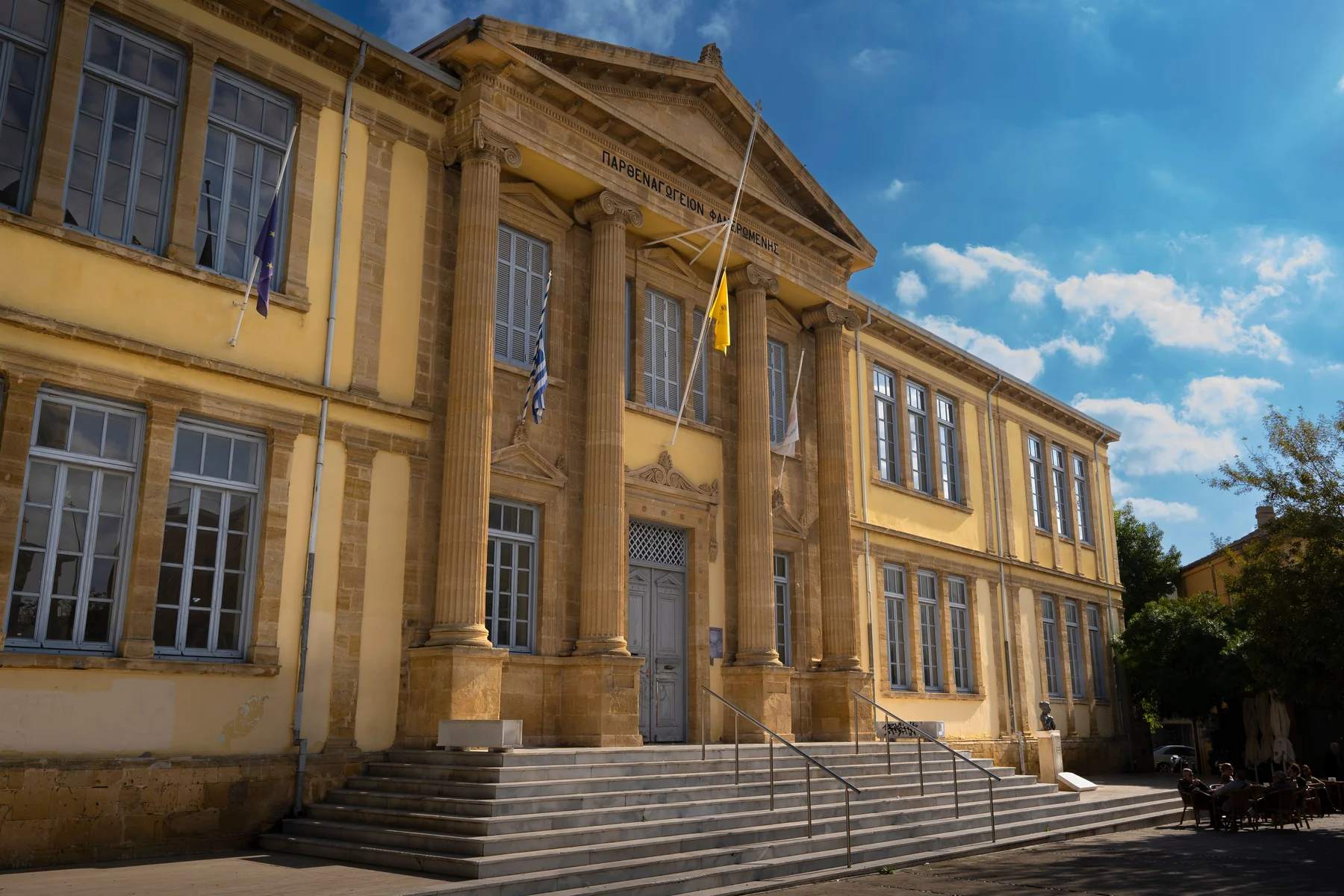
Higher Education
Higher education in Cyprus follows the Bologna Process and uses the European Credit Transfer and Accumulation System (ECTS).
|
Education level |
Duration |
ECTS credits |
|
Bachelor's |
3-4 years |
180-240 |
|
Master's |
1–2 years |
60-120 |
|
Doctoral |
3–8 years |
— |
Types of higher education institutions:
- Public universities:
- Highly competitive admission.
- Tuition-free for EU/EEA students.
- The main language of instruction is Greek, with some programs in English.
- Private universities:
- More flexible admission policies.
- Tuition fees apply.
- Many programs are offered in English.
- Public and private colleges:
- Offer vocational and academic programs.
- Usually more accessible than universities.
- Many programs are taught in English.
Costs of higher education:
- Public universities: free for EU/EEA students, €3400–€3700 per year for non-EU students.
- Private universities: €4000–€14000 per year for bachelor's programs, €8000–€22,000 per year for master's and doctoral programs.
International Education in Cyprus
International universities/schools in Cyprus are licensed and regulated by the Ministry of Education and Culture. Here are the top Greek, British, and Russian schools/universities based on curriculum and accreditation.
|
British schools |
British universities |
|
Pascal Private English School [accredited by: International Baccalaureate World Schools] |
UCLAN - University of Central Lancashire [accredited by: British Computing Society] |
|
The Heritage Private School & Institute [accredited by: British Council International School] |
— |
|
Silverline Private School [accredited by: UK examination bodies of Edexcel and Cambridge] |
— |
|
Russian schools |
Russian universities |
|
Russian Embassy School [accredited by: The Russian Ministry of Education] |
Currently, there are no accredited Russian universities in Cyprus. |
Admission requirements for international students:
- An equivalent certificate/diploma [completion of the last grade level].
- National entrance exam.
For students outside the EU:
- Clearance from a local Cyprus Embassy [Cyprus Diplomatic Mission].
- Application for Student visa.
Greek Institutions
There are currently no Greek-origin universities/schools in Cyprus accredited by an international institution. However, the education system in Cyprus is originally in Greek and focuses on enhancing the Greek language for all levels.
The Pascal Education in Cyprus, for instance, is accredited by the International Baccalaureate World Schools and offers a Greek School in their program.

Famous Universities and Schools in Cyprus by district
Nicosia
- Schools: the English School of Nicosia, AISC — American International School in Cyprus, The American Academy Nicosia, Pascal School Nicosia.
- Universities: University of Nicosia, University of Cyprus, University of Nicosia Medical School.
Limassol
- Schools: The Heritage Private School, Foley’s Grammar School.
- Universities: Cyprus University of Technology, Cyprus College of Art
Paphos
- Schools: International School of Paphos, Archbishop Makarios III Lyceum.
- Universities: Neopolis University of Pafos.
Larnaca
- Schools: American Academy of Larnaca, Pascal School Larnaca, Agios Lazarou Primary School.
- Universities: University of Central Lancashire.
Northern Cyprus schools/universities are not recognized in the Republic of Cyprus. Northern Cypriot schools and universities are accredited by the higher education board in Turkey and are recognized by most universities around the world.
Northern Nicosia [Lefke]
- Schools: Near East College, TED College
- Universities: CIS — International University in Cyprus, METU — Middle East Technical University in Cyprus European University of Lefke
Kyrenia
- Schools: The English School of Kyrenia, Nescat British College.
- Universities: University of Kyrenia, Girne American University, British University of Nicosia.
Famagusta
- Schools: Mousiko Scholeio Ammochostou [music school].
- Universities EMU (Eastern Mediterranean University in Cyprus).
Recent Changes in Cyprus Education
In the last few years, Cyprus has made some big changes to its schools to make them better and more like schools in other countries. Here are the main changes:
- New subjects in primary schools. They've added more science and math classes. They're teaching subjects like technology and engineering too. Students do more hands-on projects instead of just reading from books.
- More focus on languages. Schools are teaching more English. They've also started teaching other foreign languages.
- Using more technology. Classrooms now have more computers and other tech tools. Students are learning how to use technology better.
- Helping teachers do their job better. They're learning about the newest and best ways to help students learn.
Frequently Asked Questions About Education System in Cyprus
Is education compulsory in Cyprus?
What languages are taught in Cyprus schools?
Are there international schools in Cyprus?
How much does education cost in Cyprus?
Can international students attend universities in Cyprus?
Are Cyprus universities recognized internationally?
Author
I am responsible for editorial work. I write expert interviews and guides.

















